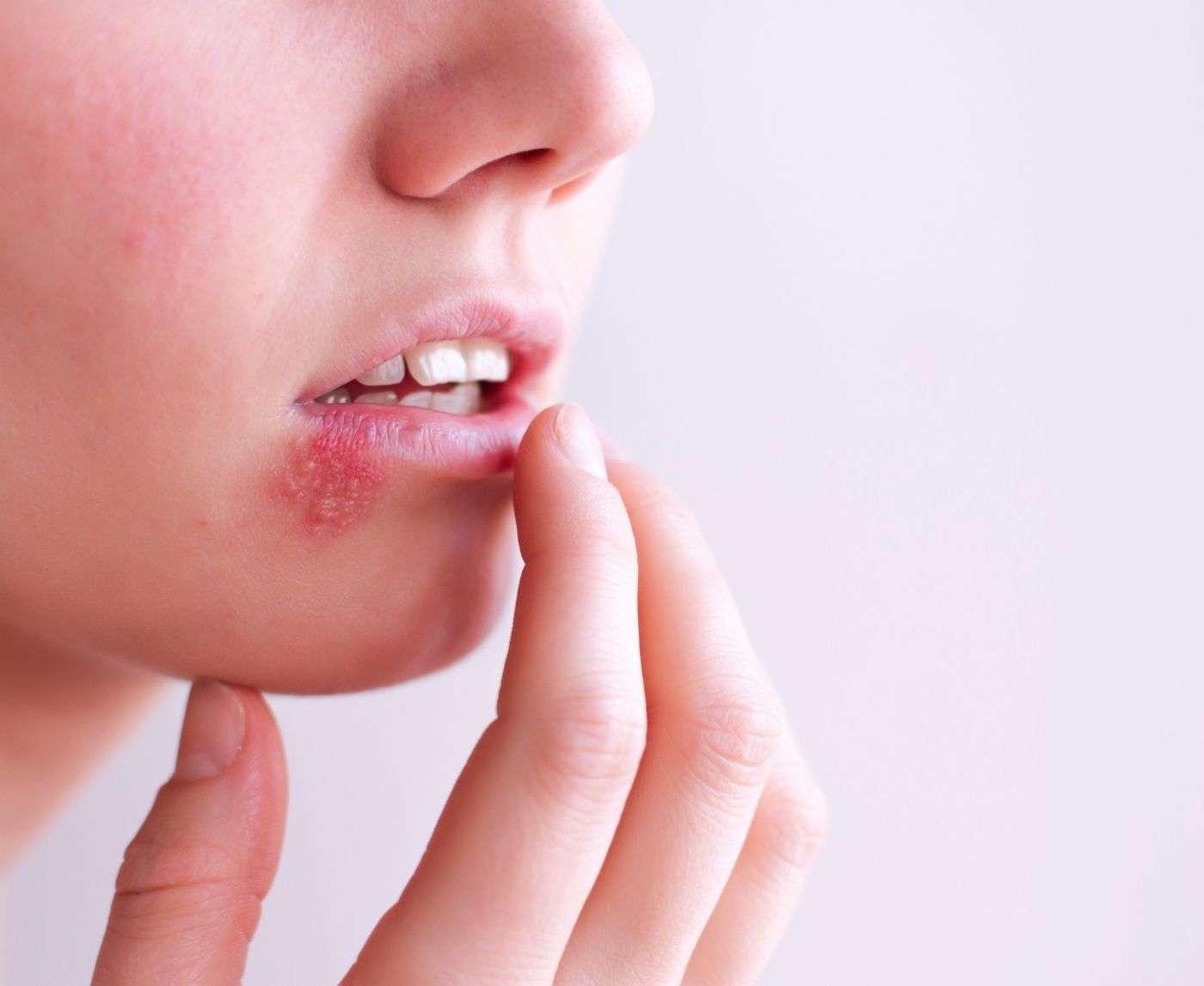It Came Back… Or Did It? Herpes Reactivation vs Reinfection
Quick Answer
Can birth control trigger herpes outbreaks?
Yes, hormonal changes from birth control, especially shifts in estrogen and progesterone, can trigger Herpes outbreaks in some women. While not everyone will notice this effect, studies show that hormone levels can influence HSV reactivation, especially around ovulation or menstruation.
HSV: The Basics
Let’s start with the basics: Herpes Simplex Virus (HSV) lives in your body forever once acquired. But it doesn’t stay active all the time. Instead, it hangs out in nerve cells, waiting for the right conditions, stress, immune suppression, or yes, hormonal shifts, to come back out and cause sores, tingling, or other symptoms.
Now, enter hormonal birth control.
The most common forms of contraception used by women, the pill, the shot (Depo-Provera), IUDs, and implants, all work by altering hormone levels in the body. That’s the whole point: they prevent ovulation, change cervical mucus, and thin the uterine lining to make pregnancy less likely.
But these same hormonal changes can also affect your immune system, your vaginal microbiome, and, as newer research is beginning to uncover, your likelihood of HSV-2 shedding or outbreak frequency.
One 2018 study published in Clinical Infectious Diseases found that women using injectable contraceptives like Depo-Provera had higher rates of HSV-2 cervical shedding compared to those not on hormonal birth control. Another paper observed that 17-β estradiol (a form of estrogen) may promote Herpes reactivation under certain conditions.
So no, you're not imagining it. The flare-ups around your period, the sudden stinging sensation after your IUD placement, the tingling lips right after switching pills, they’re worth paying attention to.
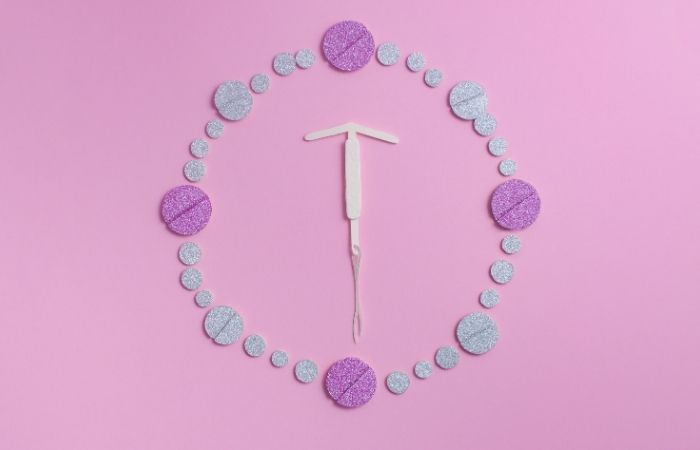
People are also looking for: Can birth control affect my discharge?
Hormonal Triggers and Immune Response
Here’s how it works: Herpes is opportunistic. It waits for the immune system to take a nap, and hormonal fluctuations can hit the snooze button for it.
Estrogen and progesterone, the two primary hormones manipulated by contraceptives, play significant roles in mucosal immunity. In simpler terms, they affect how well your vaginal and cervical tissues defend against viruses.
During certain times in your cycle, like ovulation or the luteal phase before your period, your body may be slightly less equipped to suppress the virus. This is why some women experience cyclic outbreaks, getting cold sores or genital lesions like clockwork right before their period hits.
Add in hormonal birth control, and now you're not just responding to your natural cycle, you’re layering in synthetic hormones that can disrupt the rhythm. For some women, this might stabilize their system and reduce outbreaks. But for others? It’s like lighting a match on a dry patch of skin.
This may be especially true for progestin-only methods like Depo or hormonal IUDs. They can induce a thinner vaginal lining and reduce natural lubrication, which may make the area more vulnerable to irritation and microtears, giving HSV an easier path to reactivation.
If you're seeing more frequent symptoms, it might be time to reevaluate not just your treatment plan but your contraceptive method.
Order Now $189.00 $490.00 Check Your STD Status in Minutes
Test at Home with Remedium
10-in-1 STD Test Kit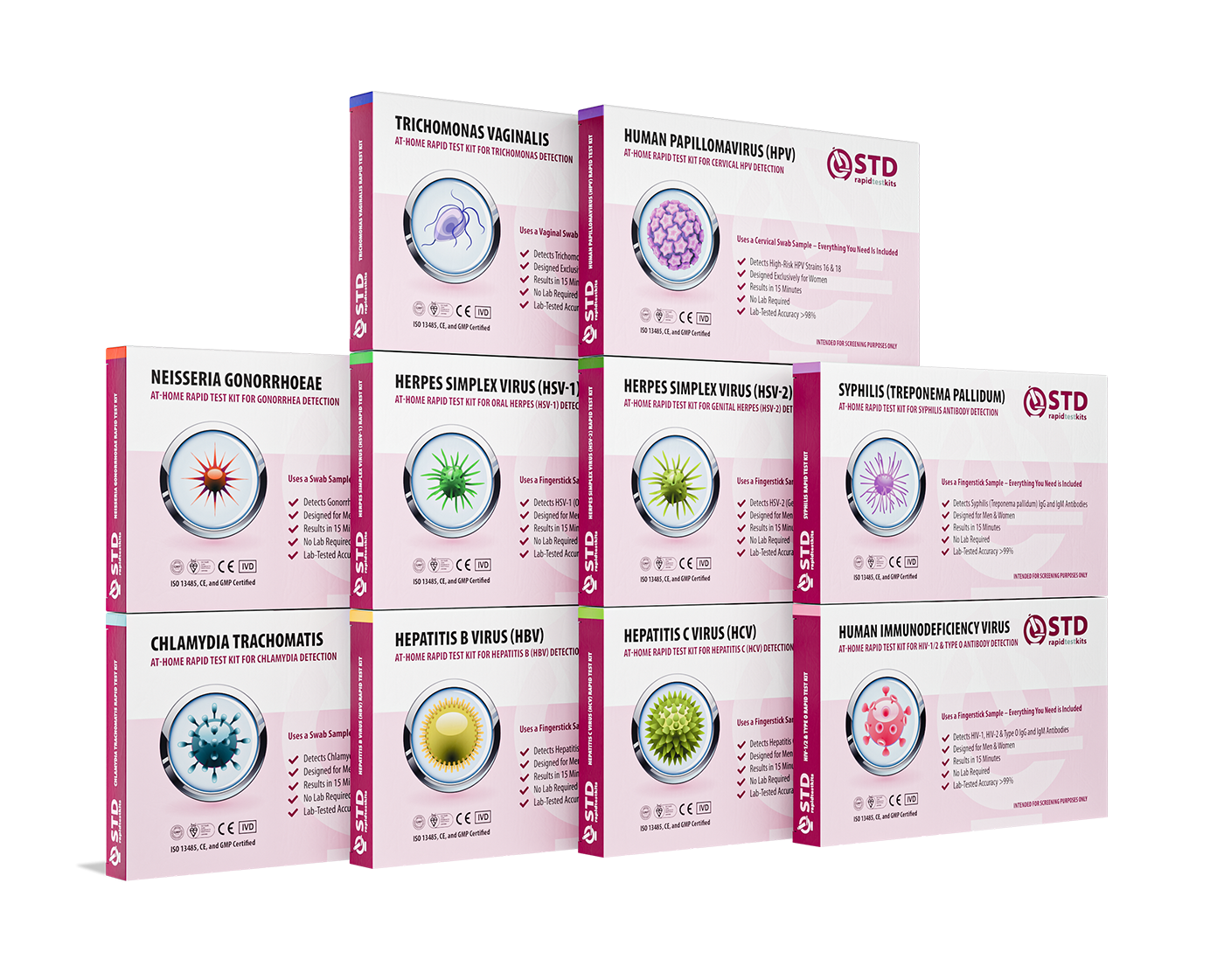




For all 10 tests
The Period Connection: Flare-Ups and Flow
It’s not just your mood and cramps that change during your cycle, your Herpes virus might be watching the calendar too.
Many women report increased Herpes symptoms during premenstrual days or right after their period starts. This timing isn’t random. Your immune system naturally dips slightly right before menstruation, partly due to hormone fluctuations and partly due to systemic inflammation.
And if you’re on combined oral contraceptives (i.e., pills with both estrogen and progestin), you typically have a withdrawal bleed during the placebo week, your body’s cue that hormone levels are dropping fast. That drop can be a reactivation trigger for HSV.
One Reddit user in r/HSVpositive shared:
“I always get a small outbreak the day before my period. When I switched to continuous birth control and stopped bleeding every month, they stopped. Coincidence? I don’t think so.”
This anecdotal experience aligns with emerging research suggesting that fewer hormonal fluctuations may help reduce outbreak frequency. It’s not a one-size-fits-all fix, but it’s a clue worth discussing with your doctor.
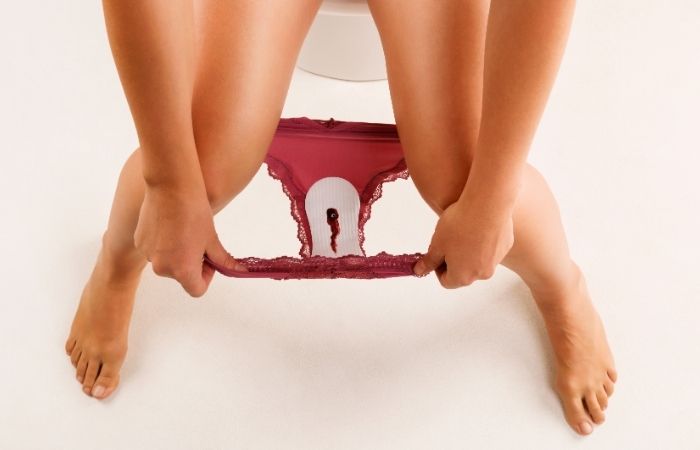
People are also looking for: What happens if I test positive for an STD when I am pregnant?
Different Birth Control Methods, Different Outbreak Patterns
Not all hormonal contraceptives act the same way, and neither does their impact on Herpes Simplex Virus. If you’ve noticed a difference in your outbreak pattern after switching methods, you’re not alone.
The Pill (Combined Oral Contraceptives)
These contain both estrogen and progestin, and are taken in 21-day cycles followed by a 7-day placebo. That “off week” when your hormone levels drop? It can be a window for Herpes reactivation, especially if you’ve already had previous outbreaks that tend to sync with your menstrual cycle.
Some women find that skipping the placebo pills to avoid the hormone dip reduces their outbreaks significantly. Others still experience random flares, especially after starting a new brand.
If you're navigating confusing symptoms and wondering whether it's a new STD or just your usual HSV acting up, a Herpes Home Test Kit can offer clarity without the clinic visit.
Progestin-Only Methods (Depo, Mini-Pill, Hormonal IUDs)
These are often the worst culprits for outbreak-triggering, particularly in women sensitive to hormone shifts. Depo-Provera, in particular, has been linked to increased genital HSV-2 shedding and slightly higher transmission risk in some studies.
The Mirena and Skyla IUDs also release progestin directly into the uterus. While localized, this hormone can still affect the surrounding tissues, causing dryness, irritation, and occasional mucosal vulnerability, conditions ripe for HSV-1 or HSV-2 reactivation.
One 2023 case report described a 35-year-old woman who experienced recurring intraoral Herpes outbreaks shortly after beginning a new progestin-only pill. After stopping the pill, her flares reduced by nearly 70%.
If you're unsure whether what you’re experiencing is a new infection or a reactivation of something you didn’t know you had, it’s wise to also test for Syphilis, HIV, or HPV, especially if symptoms are new or irregular. A Complete STD Home Test Kit Package gives you that full-picture peace of mind.
Copper IUDs (Non-Hormonal)
This one’s the wildcard. Since copper IUDs don’t mess with your hormones, they shouldn’t affect Herpes activity, right? Technically, yes, but some users still report increased outbreaks right after insertion.
Why? The theory is that insertion itself causes inflammation and nerve irritation, particularly in women with preexisting vaginal HSV infections. The cervix is rich in nerve endings, and disturbing that tissue could stir up dormant viruses in nearby ganglia.
If you notice a flare within 48–72 hours of IUD placement, it’s likely a reactivation event. Use antiviral meds preventively during this time and consider tracking symptoms.
Check Your STD Status in Minutes
Test at Home with RemediumOral Herpes Test Kit

 For Men & Women
For Men & Women Results in Minutes
Results in Minutes No Lab Needed
No Lab Needed Private & Discreet
Private & DiscreetOrder Now $33.99 $49.00
What the Science Actually Says
Let’s break down a few landmark studies without the jargon:
- A 2018 PubMed study found that genital HSV-2 shedding increased among women using hormonal contraceptives, especially injectables.
- Another from the Journal of Infectious Diseases showed that hormonal contraceptives may slightly increase the risk of HSV acquisition, not just reactivation. The likely culprit? Immune modulation and vaginal thinning due to hormone levels.
- In a surprising twist, a 2009 study on estrogen’s role in HSV-1 reactivation revealed that high levels of estradiol could promote viral replication in lab settings, suggesting that even oral Herpes can be hormone-sensitive.
- Finally, a Lancet Global Health report confirmed a small but notable increase in HSV-2 infection risk among women using Depo-Provera, raising important questions about its use in high-risk populations.
This isn’t fringe science. The connection between hormonal contraceptives and Herpes outbreaks is real, but individual experiences vary. Some women feel more stable on birth control. Others find their symptoms worsen dramatically.
Personal Stories and Real-Life Symptoms
Tasha, 31, had been managing genital Herpes for five years with minimal outbreaks, maybe one or two mild flares a year. But after switching to Depo-Provera, something changed.
“The first few months I blamed stress, maybe a cold, maybe tight jeans. But it wasn’t subtle. My flare-ups were more frequent, more painful. I started tracking everything, food, stress, sleep, and the only real change was my birth control.”
After going back on a low-dose combined pill, her symptoms lessened. “I didn’t realize how much hormonal shifts could poke the virus awake. No one warned me.”
Jules, a 24-year-old grad student, had a similar experience post-IUD insertion.
“The week after my Mirena went in, I got my first cold sore in a year. Then another one. My gynecologist brushed it off. But I knew it wasn’t random.”
What both women experienced reflects a frustrating truth: women’s Herpes symptoms are often dismissed, especially when they overlap with hormonal health. Doctors may not ask about outbreak frequency. Patients may feel embarrassed to bring it up. And so the cycle continues, unspoken, unmanaged, and misunderstood.
This silence is part of the problem. If you’re noticing a pattern between your contraceptive choices and your HSV flares, it’s not “all in your head.” It’s in your hormones, your nerves, your immune system, and you have every right to investigate it.
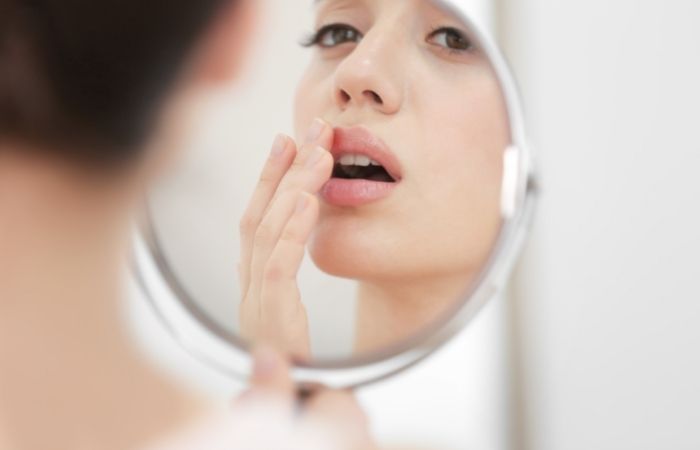
People are also looking for: Can red spots on my vagina mean I have herpes?
How to Talk to Your Doctor Without Getting Dismissed
The key to getting support is specificity and confidence. When discussing Herpes and hormonal birth control with your provider:
- Come with a symptom journal if possible. Note your cycle days, outbreaks, and contraceptive method.
- Use non-blaming language: “I’m noticing a pattern I’d like to explore” rather than “You gave me the wrong pill.”
- Ask about non-hormonal options, like the copper IUD, or extended-cycle pills that minimize hormonal dips.
- Request site-specific testing if you suspect other infections. Herpes might not be the only thing flaring. It’s also worth screening for Chlamydia, Gonorrhea, or Syphilis using multi-site swabs.
And if your provider rolls their eyes or shrugs off your symptoms? Find a new one. You deserve care that acknowledges the full picture of your body, not just what fits into the EMR dropdown list.
If you’d rather avoid the clinic altogether (and we get it), STD Rapid Test Kits allows you to test discreetly at home. You can screen for common infections, track your results, and check for HSV without any awkward waiting room stares.
Check Your STD Status in Minutes
Test at Home with Remedium3-in-1 STD Test Kit
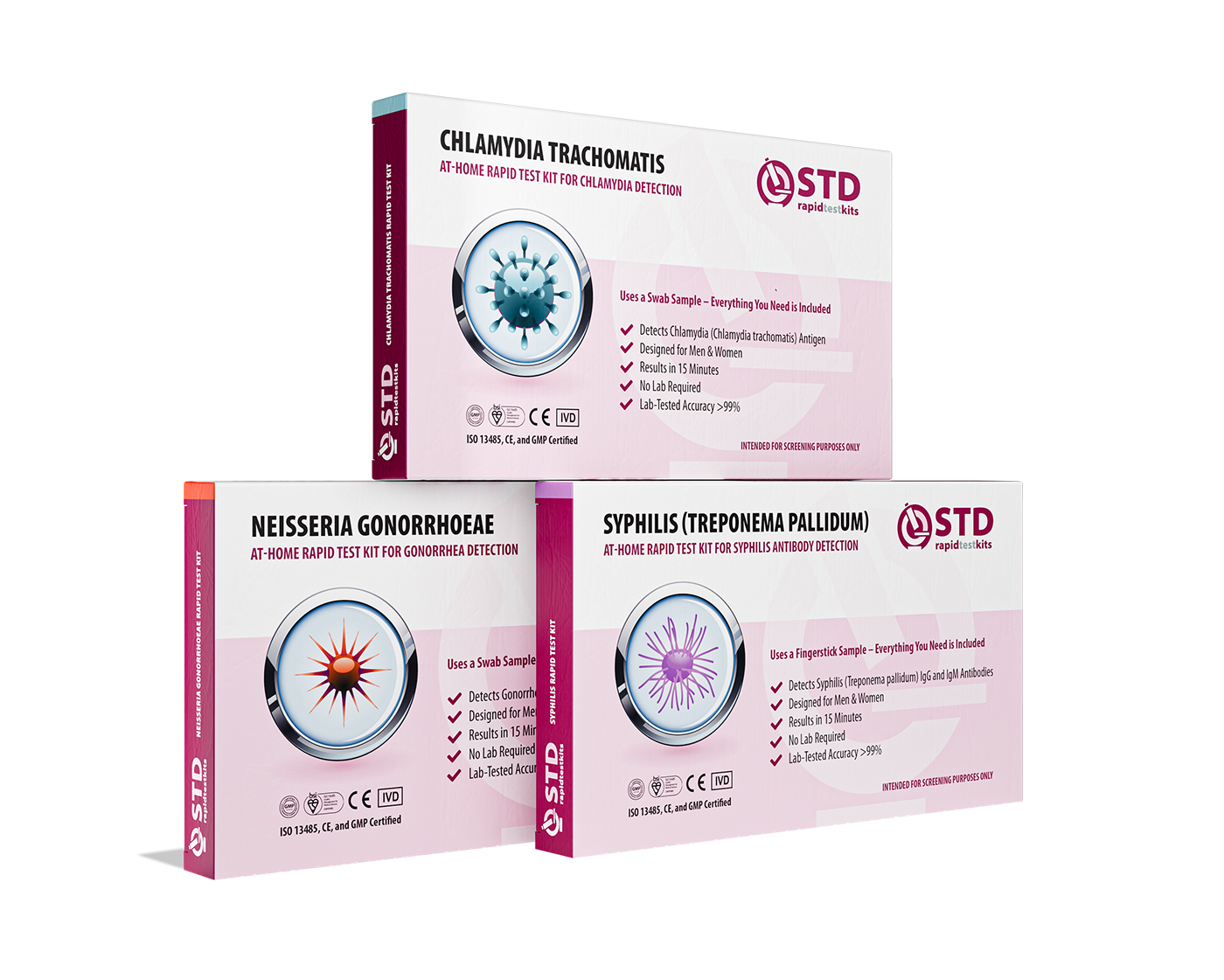
 For Men & Women
For Men & Women Results in Minutes
Results in Minutes No Lab Needed
No Lab Needed Private & Discreet
Private & DiscreetOrder Now $69.00 $147.00
For all 3 tests
Myth-Busting the Herpes & Hormone Connection
“If you’re getting more outbreaks, your meds must not be working.”
Not true. Hormones can override even suppressive therapy in some cases. You may need to adjust dosage, or revisit your contraceptive method.
“Only stressed people get outbreaks.”
Stress is a trigger, yes, but so are hormones, illness, UV light, and physical trauma. Don’t gaslight yourself.
“All birth control should calm things down.”
Some women report fewer outbreaks on birth control. Others flare up. It’s individual. Your body is the lab, and you’re allowed to run the experiment.
“My doctor would have told me if there was a connection.”
Unless your doctor specializes in STDs or is HSV-positive themselves, they may not know how nuanced this link is. That doesn’t make your symptoms invalid.
FAQs
1. Can the pill trigger a Herpes outbreak?
Yes. Especially during the hormone withdrawal week, when estrogen and progesterone levels drop, some women experience flare-ups.
2. Is Depo-Provera worse for Herpes than the pill?
For some women, yes. Depo is progestin-only and has been linked to increased viral shedding in HSV-2.
3. Why do I break out every time I get my period?
Hormonal dips before menstruation can lower your immune response and allow Herpes to reactivate.
4. Will switching to a copper IUD help?
Possibly. It doesn’t alter hormone levels, which might reduce outbreaks triggered by synthetic hormones. But some women still report flares from inflammation.
5. Can I test for Herpes at home?
Yes. Use a trusted Herpes test kit that’s accurate, private, and doesn’t require a clinic.
6. Do I need to test for anything else?
If you’re sexually active, yes. It’s smart to test for Chlamydia, Gonorrhea, HPV, and HIV, especially if symptoms are new or confusing.
7. Is suppressive therapy enough?
Not always. Hormones might override it. You may need to adjust your dose or time it around cycle days.
8. Can birth control actually prevent outbreaks?
Some women find that stable hormone levels from extended-cycle pills reduce their flares. It depends on your body.
9. Will every method affect me the same?
No. You may need to experiment to find a method that supports your health, not disrupts it.
10. Should I stop birth control if I have Herpes?
Not automatically. Talk to your provider. There may be safer alternatives that work better for your virus pattern and lifestyle.

Check In With Your Body
Your body is not betraying you. If your Herpes symptoms are changing after starting or switching birth control, it’s not a coincidence, it’s a biological conversation. Hormones are powerful. So are you.
Trust what you’re feeling. Track what you’re seeing. And take action when things don’t feel right.
Not sure if it’s hormonal or herpes? Take control of your health with this Herpes test. It’s fast, private, and accurate.
You deserve clarity. You deserve care. And if your birth control is getting in the way of that? It’s time to talk about it, out loud, online, and in your doctor’s office.
Sources
2. 17-β Estradiol Promotion of Herpes Simplex Virus Type 1 Reactivation – PMC






